View current news articles, commentary, videos and more having an impact on Jewish culture, politics and religion at Rabbi Silverman's Sites to See
We are taught some beautiful lessons on Shavuot, by Rav Levi Ischak of Berdichev, who lived at the beginning of the 19th century. "Why is it," he asks, "that we don’t say the Shehehiyanu when we begin the counting of the Omer? It is because the Omer is not an arrival. It is the beginning of the journey through forty-nine gates of purity, and we don’t arrive at our journey's end until we get to Shavuot, prepared and fully open to receiving our Torah." It is upon arrival that we say the Sheheyanu. "Why," our rabbis ask, "is Shavuot called 'Matan Torah' ?" Says Rav Levi Ischak, "That is easy. It is designated as the day on the calendar, in the book of Exodus Chapter 19, when the Israelites come and stand by the mountain and say 'we will do and hear.’" The Torah, however, never calls this day "Chag Matan Torah." Why? Because the Torah puts a premium on humility and doesn’t want to call attention to itself! Another possibility is because the Torah was always given; it is just that on that day it was finally received by a community of people. For some reason though, it was never named "Chag Kabbalat Torah." Levi Ischak doesn’t answer that one.
And why is it that Shavuot is called "Atzeret,"–boundary or stoppage? That is because it marks the end of the counting of the Omer. It is also the time at which the Israelites made a boundary beyond which they did not climb the mountain. They limited their ascent. In some sense, this seems like a loss, as a closer look at the text seems to say that when the shofar sounds louder and louder you can ascend. Still, it may also be a great gain. The Israelites showed a willingness to calibrate their freedoms. They established boundaries around their freedom by accepting mitzvoth, both positive and negative, which would further define them. Shavuot demands that we make certain boundaries, ritually and ethically, to be fully free and fully human.
“Freedom’s not another word for nothing left to lose,” crooned Janis Joplin. I agree, if what she was getting at was that radical freedom can destroy a person. Radical freedom leads first to anarchy and then to tyranny, according to Rabbi Jonathon Saks. Freedom doesn’t mean that anything goes. True freedom is freedom from the enslavement of the ego, wherein our wants, fantasies and cravings begin to control us. Pesach is a freedom from shackles and enslavements. It must, therefore, have its counterpart, Shavuot. May a freedom with boundaries allow our souls to take root and to, in time, sing and dance a Halleluya to a God. May Shavuoth Atzeret always remind us of this defining freedom, with limits and obligations. May it continue to shape us and prepare our Jewish souls in this annual journey through our pilgrimage festivals, and to that we say, Amen.
